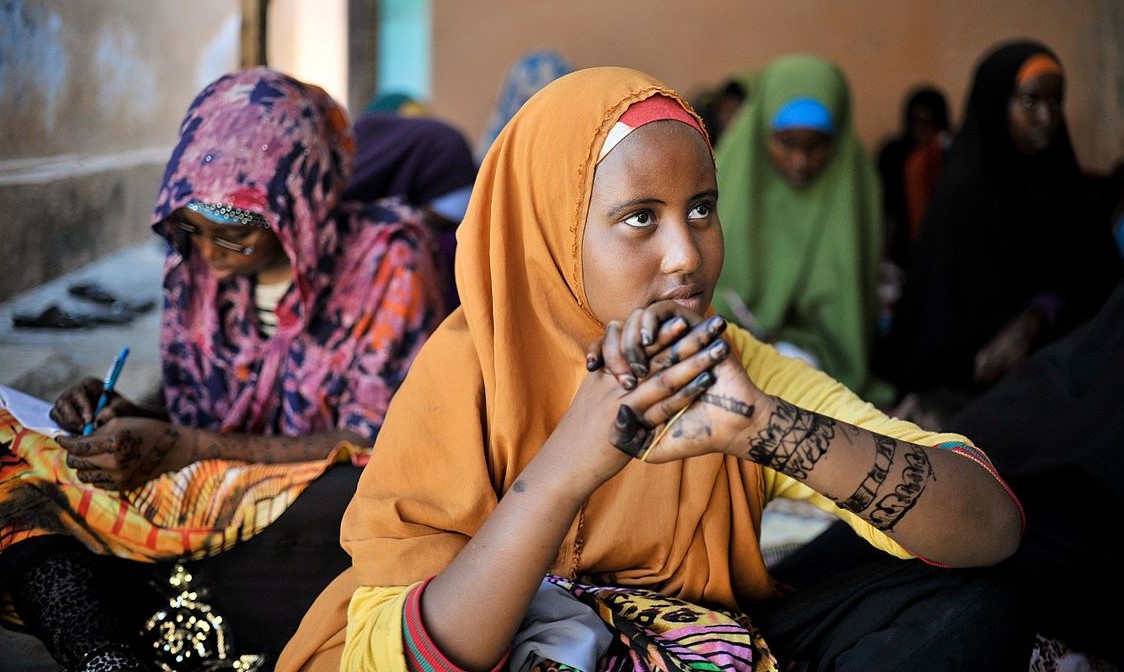is the US bullying the UN to dump sexual and reproductive rights?
In the middle of a pandemic, the US is opposing women’s basic human right to determine what happens to their bodies. The world appears to be marching backwards, not forwards, writes Amy Haddad.
Unless you are a multilateral gender nerd like me you may not know that 2020 is the 20th anniversary of UN Security Council Resolution 1325 – or the Women Peace and Security (WPS) Agenda. This is the resolution that finally recognised that women and girls experience conflict differently to men, that we should protect women and girls from violence in conflict, and work with women to prevent conflict.
Critically, the WPS agenda underscores that women’s participation in peace processes is essential to lasting peace.
There have been a further nine UN Security Council resolutions on WPS since 2000, but progress has been disappointingly slow. And not just because talk is cheap and action difficult, or because war — both making and peace building — is a bloke fest, but because some countries actively oppose women’s human rights.
In April 2019, the Security Council debated a resolution on sexual violence in conflict intended to advance a survivor-centered approach that holds perpetrators to account, ends stigma and ensures appropriate support for survivors. But many, myself included, thought this resolution was a bad idea. Why? We knew the US would blow it up. And we were right.
The US has a veto in the Security Council which it threatened to use unless every reference to sexual and reproductive health and rights (SRHR) was removed, including any direct references to the previous WPS resolutions mentioning SRHR.
Nadia Murad and Amal Clooney had addressed the Security Council that morning on the need for support for survivors and watched on as the Security Council adopted UNSCR2467 – a resolution directly focused on sexual violence and rape survivors that contains no mention of SRHR.
There’s a whole paragraph on women who get pregnant as a result of rape but no reference to reproductive health. Against this low bar, UNSCR2493 was adopted in October 2019. It merely called for the full implementation of previous WPS resolutions, but on adoption, the US declared this did not include resolutions referencing SRHR. Seriously. And given these dynamics, there is no hope of using the 20th anniversary to progress the conversation on WPS.
Chillingly, this schmozzle is part of a longer-running opposition to SRHR. This blanket term covers issues including sexuality education, STI prevention, LGBTIQA+ health services, family planning and – yes – abortion.
Abortion is the key controversy, but there is also wrangling around sexuality education (especially from the abstinence crowd).
Abortion is the key controversy, but there is also wrangling around sexuality education (especially from the abstinence crowd) and LGBTIQA+ services.
SRHR is the compromise umbrella that avoids the need to unpick challenging specifics. But if there is pressure against even these vague words then we risk silencing a core discussion about human rights and bodily autonomy.
When we gloss over the need for survivors of sexual violence to access specific health support, we gloss over the fact that choice – including access to safe and legal abortion – is key to women’s dignity, their health and their rights.
The US is now working to exclude SRHR from COVID-19 responses. And it isn’t using a veto; it is using millions of dollars and seems willing to tear down key institutions to get its way.
US disapprobation over WHO’s handling of COVID-19 was a trigger to pull the pin. But conservative groups have been lobbying for this since 2003 when WHO released Safe Abortion Technical and Policy guidance. That sent conservative groups into a spin, arguing that WHO had overreached its mandate.
Not long before the US withdrew from WHO, John Barsa, the acting administrator of USAID wrote to the UN Secretary-General requesting he remove references to SRHR ‘and its derivatives’ from the UN’s Global Humanitarian Response Plan (GHR).
The UN estimates that COVID-19 will see 47 million women lose access to contraceptives, resulting in seven million unwanted pregnancies
Compare this against UNFPA, the UN’s sexual and reproductive health agency, that estimates that COVID-19 will see 47 million women lose access to contraceptives, resulting in seven million unwanted pregnancies. And while the US has withdrawn from the WHO, many responses, including the GHR, are funded outside the WHO and the US is clearly prepared to throw its weight around to prevent funding for SRHR.
Access to safe and legal abortion saves lives. It is foundational to women’s control over their bodies, which is a fundamental human right. It’s easy to think that UN resolutions are a complicated acronym soup, but the US dummy spit over UNSCR2467 has real implications for how resources are allocated, results reported, and attention focused.
And if you needed any more fuel to fire your rage, consider this: the US is prepared, in the middle of a crisis, to pull the plug on life-saving funding because it opposes women’s basic human right to determine what happens to their bodies. If it is successful, women will die.
Amy Haddad is an independent consultant working in the areas of gender equality, social inclusion, SDGs and human rights. She was until recently principal sector specialist for gender equality at the Department of Foreign Affairs and Trade. Amy represented Australia in the Global Focal Point Network on Women Peace and Security at the UN in 2018-19.
This article was originally published on BroadAgenda. Read the original article.


